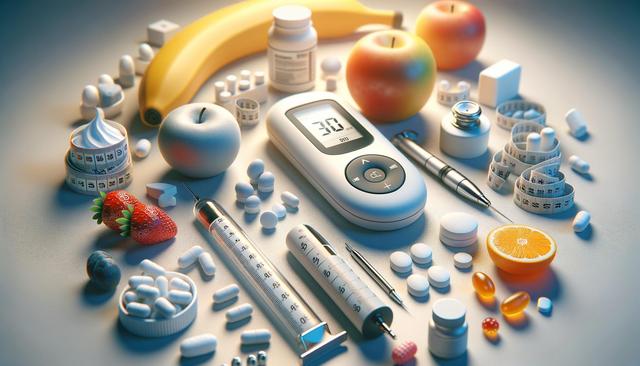What Is Diabetes and How Does It Affect the Body?
Diabetes is a metabolic disorder characterized by high levels of blood glucose resulting from problems in insulin production, insulin action, or both. Insulin is a hormone produced by the pancreas that helps glucose enter the body’s cells to be used for energy. When this process is disrupted, glucose remains in the bloodstream, leading to elevated blood sugar levels. There are primarily three types of diabetes: Type 1, Type 2, and gestational diabetes. Each type has unique causes and risk factors, but they share common symptoms and complications if not properly managed.
One of the early diabetes signs includes frequent urination, especially at night. Other symptoms may involve increased thirst, unexplained weight loss, extreme fatigue, and blurred vision. Recognizing these signs early is critical to initiating timely diabetes care and preventing complications such as heart disease, kidney failure, and nerve damage. Understanding the nature of diabetes is the first step in managing it effectively and improving quality of life.
Recognizing Diabetes Signs for Early Intervention
Identifying diabetes signs early can make a significant difference in managing the disease and reducing the risk of long-term health issues. The symptoms of diabetes can develop gradually and may often be mistaken for other conditions, which is why awareness and vigilance are essential.
Common signs to watch for include:
- Frequent urination and increased thirst
- Unexplained weight loss or gain
- Slow-healing wounds
- Tingling or numbness in hands and feet
- Fatigue and irritability
Some individuals may experience no noticeable symptoms, especially in the early stages of Type 2 diabetes. Regular health checkups and blood glucose monitoring are important for those at risk, including people with a family history of diabetes, individuals who are overweight, and those with a sedentary lifestyle. Detecting diabetes signs early allows for prompt diabetes treatment and lifestyle adjustments that can help manage the condition effectively.
Approaches to Diabetes Treatment
Diabetes treatment varies based on the type and severity of the condition. For individuals with Type 1 diabetes, insulin therapy is essential because the body no longer produces insulin. Type 2 diabetes may be managed through lifestyle changes, oral medications, or insulin therapy, depending on how advanced the condition is.
Effective diabetes treatment strategies include:
- Monitoring blood glucose levels regularly
- Taking prescribed medication or insulin as directed
- Maintaining a balanced diet rich in fiber and low in processed sugars
- Exercising regularly to improve insulin sensitivity
- Managing stress and ensuring adequate sleep
Innovations in diabetes care have led to advanced treatment tools such as continuous glucose monitors and insulin pumps, which can help individuals maintain stable blood sugar levels. Working closely with healthcare providers ensures that the chosen diabetes treatment plan aligns with the individual’s health needs and lifestyle.
Building a Sustainable Diabetes Care Routine
Effective diabetes care involves more than just medication. It requires a comprehensive and consistent approach to managing all aspects of health. Building a sustainable care routine means integrating healthy habits into daily life and maintaining open communication with healthcare professionals.
Key components of a successful diabetes care plan include:
- Healthy eating habits: Prioritizing whole foods, lean proteins, and complex carbohydrates
- Physical activity: Engaging in at least 150 minutes of moderate exercise each week
- Regular medical checkups: Monitoring blood pressure, cholesterol, and kidney function
- Foot and eye care: Preventing potential complications through routine examinations
- Emotional well-being: Seeking support from counselors or support groups if needed
Consistency in these areas can significantly reduce the likelihood of diabetes-related complications. Education also plays a vital role—understanding how different foods, activities, and medications affect blood sugar levels empowers individuals to make informed decisions in their diabetes care journey.
Living Well with Diabetes: Long-Term Management
Although diabetes is a lifelong condition, many people live full and active lives by managing it effectively. Long-term diabetes care focuses on maintaining optimal blood glucose levels, preventing complications, and promoting overall well-being. This often requires adjustments in lifestyle, diet, and treatment plans over time.
Regular monitoring and flexibility are essential elements of long-term diabetes treatment. It’s important to stay updated with new medical guidelines and evolving treatment technologies. For many, support from family, healthcare teams, and community resources enhances motivation and accountability.
Tips for long-term diabetes management include:
- Keeping a daily log of blood sugar levels and related health metrics
- Staying informed about new treatment options
- Setting realistic goals for weight, activity, and nutrition
- Participating in diabetes education programs
With the right approach to diabetes treatment and care, individuals can manage their health effectively and reduce the risk of serious complications. Long-term success depends on proactive engagement and a willingness to adapt as personal health needs evolve.
Conclusion: Taking Control of Your Diabetes Journey
Diabetes is a complex condition, but with early recognition of diabetes signs, consistent diabetes care, and appropriate diabetes treatment, it is manageable. For individuals living with diabetes or those at risk, staying informed and proactive is essential. Small daily choices—like meal planning, physical activity, and regular health checkups—can lead to meaningful long-term benefits. By understanding your unique needs and working closely with healthcare professionals, you can take empowered steps toward a healthier future.






